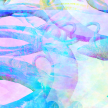Diversity & Depth
"Legion" Ushers In The New Era of Superhero TV

It's no secret to anyone who has been paying attention that audiences in 2017 are clamoring for fresh, new takes on old stories.
After the 'roided-out heroes with giant guns craze of the 1990s died down, comic books became very stale and underused as fodder for film & TV adaptations. Demographics shifted and the way people consume media, particularly comic books, has changed entirely.
But back in 1985, comic books occupied a strange superposition of being both a niche interest and also an everyday part of life; seen on all the newsstands and clutched in the hands of every child.
Chris Claremont and Bill Sienkiewicz, in their mid-80s heyday, created a strange and unique new character that they dropped into the X-Men universe; David Haller, the all-powerful, previously-unknown mutant son of Professor Charles Xavier.
David's story unfolded into something very interesting, a psycho-drama of epic proportions, instead of remaining a simple curiosity, or plot contrivance, or ally/foil to his father.
When Legion as a character was originally conceived, there could not have been a show aired on TV at the time that would have been accurate to the source material, let alone an improvement upon it in any way. Mercifully, the wheels of time and taste continue to turn and media continues to evolve.The first season of Legion premiered earlier this year with very little pomp or circumstance in terms of marketing or hype, aside from screenings at conventions and the usual PR chatter.
Devoted Marvel fans across the world never imagined that this complicated story would be adapted in a way that would do justice to the original comic book.
Fortunately, show runner Noah Hawley had bigger plans for Legion than anyone could ever have guessed.
Along with the changing sensibilities of the viewing public as a whole, it is self-evident that there are many writers and studio heads who are making a new emphasis on diversity and depth in characterization; rather than centering entire shows around easily-identified-with cardboard cutouts of one demographic segment, or taking the shallow BK Kid's Club approach that is equally insulting and tone-deaf.
Back in 1985, the question that execs would have posed regarding having a superhero show with an ensemble cast that featured many differing perspectives would have been; "Why should we bother to do this?" and not "How can this be done?"
In 2017, the latter question has been asked and answered, with Legion and its motley crew of mutant superheroes; David (Dan Stevens) has been mistakenly diagnosed as being severely mentally ill, to the extent that he was placed in an institution by his sister. His entire adult life has been put on hold and his path fundamentally altered as the Shadow King (Aubrey Plaza) uses him in the same way that a parasite uses its host to survive.
Sydney (Rachel Keller) faces similar hardships with her powers, even though she seems to know that her body-swapping mutation is very much real and tangible from the beginning. She still shares a long road ahead with David in understanding that her abilities are, in fact, strengths, and not symptoms.
The other supporting characters in the mutant haven Summerlandare just as vivid and complex as David and Syd; Ptonomy (Jeremie Harris) has seen the memories of so many other mutants via his powers that he has very little patience or subtlety. He wants to hammer down every loose nail and he would prefer to do it sooner, rather than later. His detachment is the result of world-weariness.
Melanie (Jean Smart) conveys a coolly-maternal attitude towards the Summerland mutants; she is, in her own way, suspended in time, waiting for her cryogenically frozen 70s-shagadelic husband Oliver (Jemaine Clement) to return.
And my personal favorites are Cary and Kerry (Bill Irwin & Amber Midthunder), two characters who are separate and yet one and the same. Kerry is the rare example of a properly-written Native American superhero, defined and not-defined by her heritage all at once, she carries herself with a true grace, never even touching the surface of being a stereotype.
Cary is her male counterpart/brother/father-figure and he epitomizes the opposite of toxic masculinity with his vulnerability and softness, in a direct counterpoint to her brusque, brash, direct way of thinking.This is a complete reversal of how their plot would have been executed had the show been written in another era and it is like a breath of fresh air.
Not only does the origin story for David as well as the preexisting comic book elements of the plot shine like a beacon, but what has been invented out of whole cloth for the TV show fits perfectly, like a puzzle piece that should have always been there.
Characters in Legion are not given extra gravitas for being young, or beautiful, or perfect. They are not made of plastic, or plasma, or other ethereal substances; they have been elevated and illuminated like fully formed human beings, flaws and all. Each one embodies a certain underrepresented demographic or population of people while also simply being people.
And that is the essence of what makes Legion the most groundbreaking, stunningly diverse and well-written Marvel TV series to date.
About the Creator
The Neon Of 1986
The Neon of 1986 is a multimedia musician, artist and writer from northeast GA/Southern Appalachia.






Comments
There are no comments for this story
Be the first to respond and start the conversation.